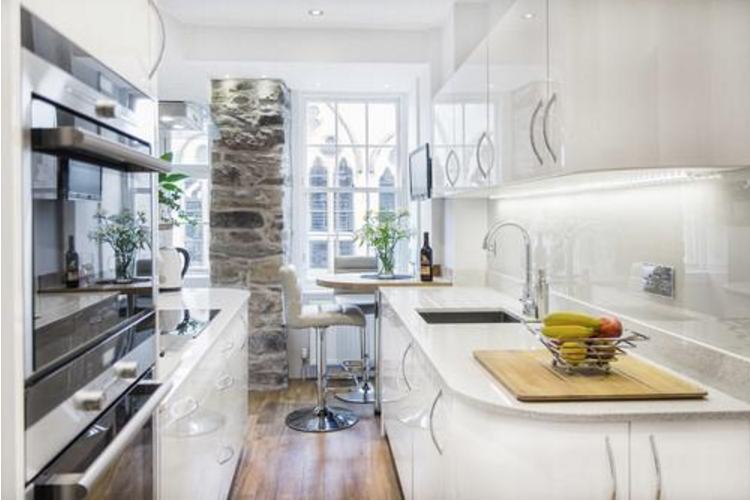Buying domestic appliances is something that most of us don’t need to do very often. This means that when you do come to do it, there’s a lot that you need to figure out if you’re going to get a good deal. How can you tell a good appliance from a bad one? When is it worth spending a bit extra? How long should you expect your appliances to last? This guide is here to help.
Stoves and cooktops
The simplest way to fit a stove into your home is to purchase a freestanding range, which can usually be fitted quickly by the people who deliver it. If you’re rebuilding your whole kitchen, however, then you may want to consider an integrated appliance, which gives you more options, and a separate cooktop, which can be fitted wherever it’s convenient. Either way, your prime consideration should be sourcing a product with a good reputation for safety. It’s worth paying extra for a self-cleaning capacity, which not only saves you work (though you’ll still have to wipe it) but also reduces the risk of the stove catching fire. You may also want to consider a cool-touch door. A child lock on the stove and an induction-based cooktop are both a good idea in households with young children, and induction cooking will also keep your fuel bills low.
If you have a deep fryer, check here as we have a great selection of article tips and guides designed to help you make the most of your fryer.
Fridges and freezers
Coming home to a big fridge full of food feels great, especially in summer, but if you want to be practical, then you shouldn’t buy any fridge that you can’t keep full most of the time (without food going off). This is because fridges – and freezers – run more efficiently when full. If you live alone, then look at mini-fridge options or side-by-side combination fridge freezers. Check for high energy ratings to save on fuel and help the environment. Consider antibacterial coatings to reduce the risk of food contamination, but don’t scrub too hard if you choose them as they can be scraped off.
Washing and drying machines
There are a great many different portable washing machine designs out there on the market but few good ones. Although they cost a little more, machines without sealed drums are by far the best choice as they’re much cheaper to repair, so over time you will get a lot more use out of them for your money. Combination washer/dryer machines don’t tend to work well, unless you choose the old-fashioned twin tub style – this type is also relatively easy to repair and is very hard-wearing. Make sure that the machine you buy is well weighted so that it won’t “walk” across the floor when in use. Look for high energy ratings and a good range of temperature settings.
Dishwashers
Although integrated dishwashers are an option and can be pleasingly discreet, freestanding appliances are easier and cheaper to repair, so they generally work out as a better deal over time. The exception to this rule applies if you live alone, in which case a drawer-style dishwasher is often the most efficient option. It’s always better to run your dishwasher full. Look for high energy ratings and a low number of liters of water needed per cycle. Consider a self-cleaning cycle, but be aware that you may still need to remove stubborn dirt manually.
A/C units
Window air conditioners are the simplest option for most people, and are relatively easy to fit, but you may need portable units if you’re in rented accommodation or local regulations mean that they’re not allowed. Choose the smallest size that’s adequate for your room, and if it’s portable, then make sure that you can actually move it. Look for good insulation and a good seal on window-based models. Listen before you buy and choose a unit that’s not too noisy. This is one area where it’s really worth considering a smart appliance as it’s great to be able to adjust your A/C remotely from your phone and come home to a cool house.
Boilers
A boiler is often among the most expensive single purchases you will make for your home, so it’s especially important to get it right. Not all warranty companies insure boilers, and you may be limited in the warranty you can get from the manufacturer, so this should be a major consideration when choosing home warranty companies. If you live alone in a small home, then a combi-boiler is probably the best option for you, and will save you money. For a larger property, you’ll need a heat-only boiler or (if you’re willing to pay a bit more) a system boiler, which functions in the same way but is smaller and gives you more control.
Making informed decisions when you buy appliances can save you a great deal of money in the long run. It also helps to keep your home running smoothly with minimal trouble.

